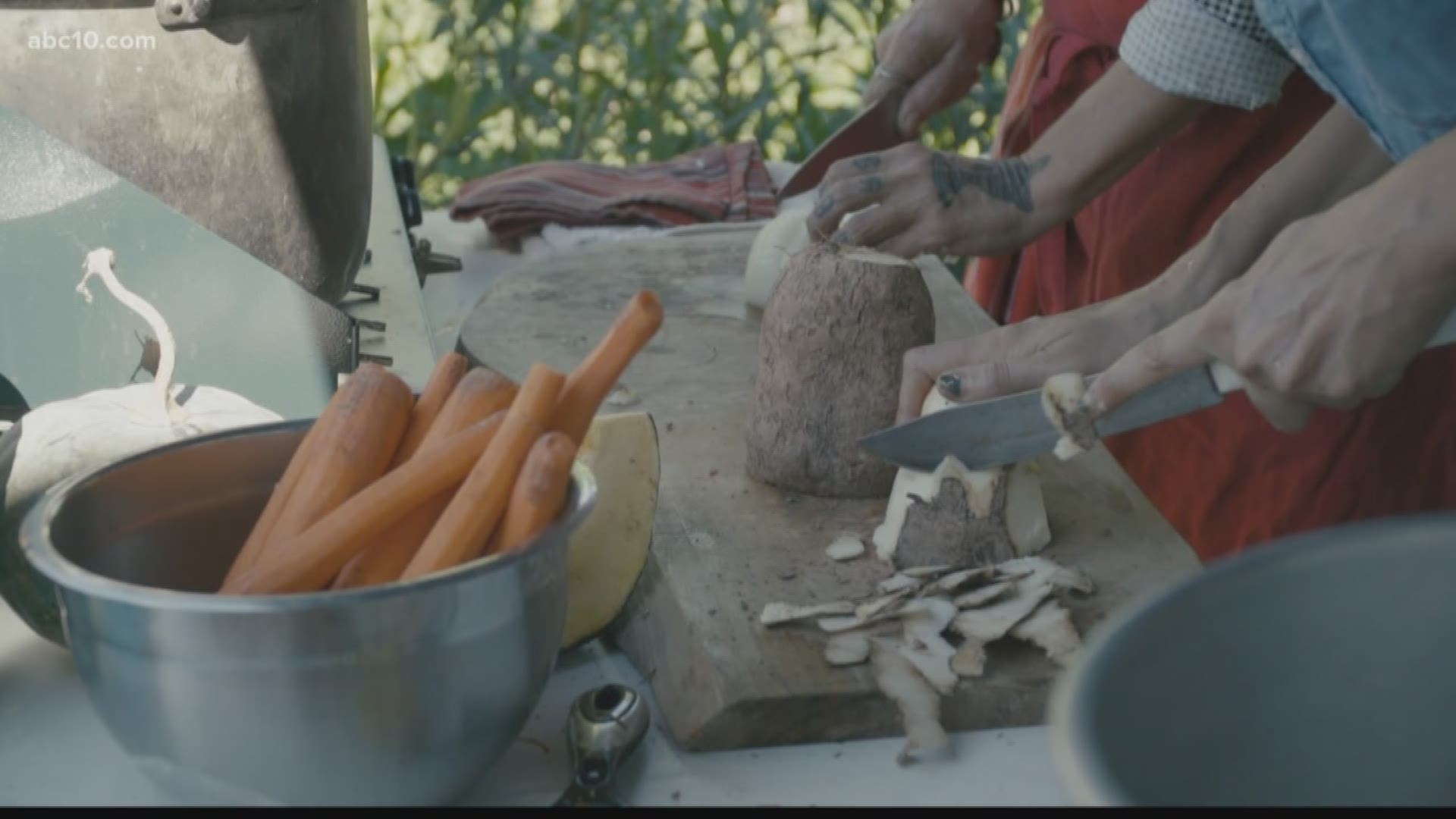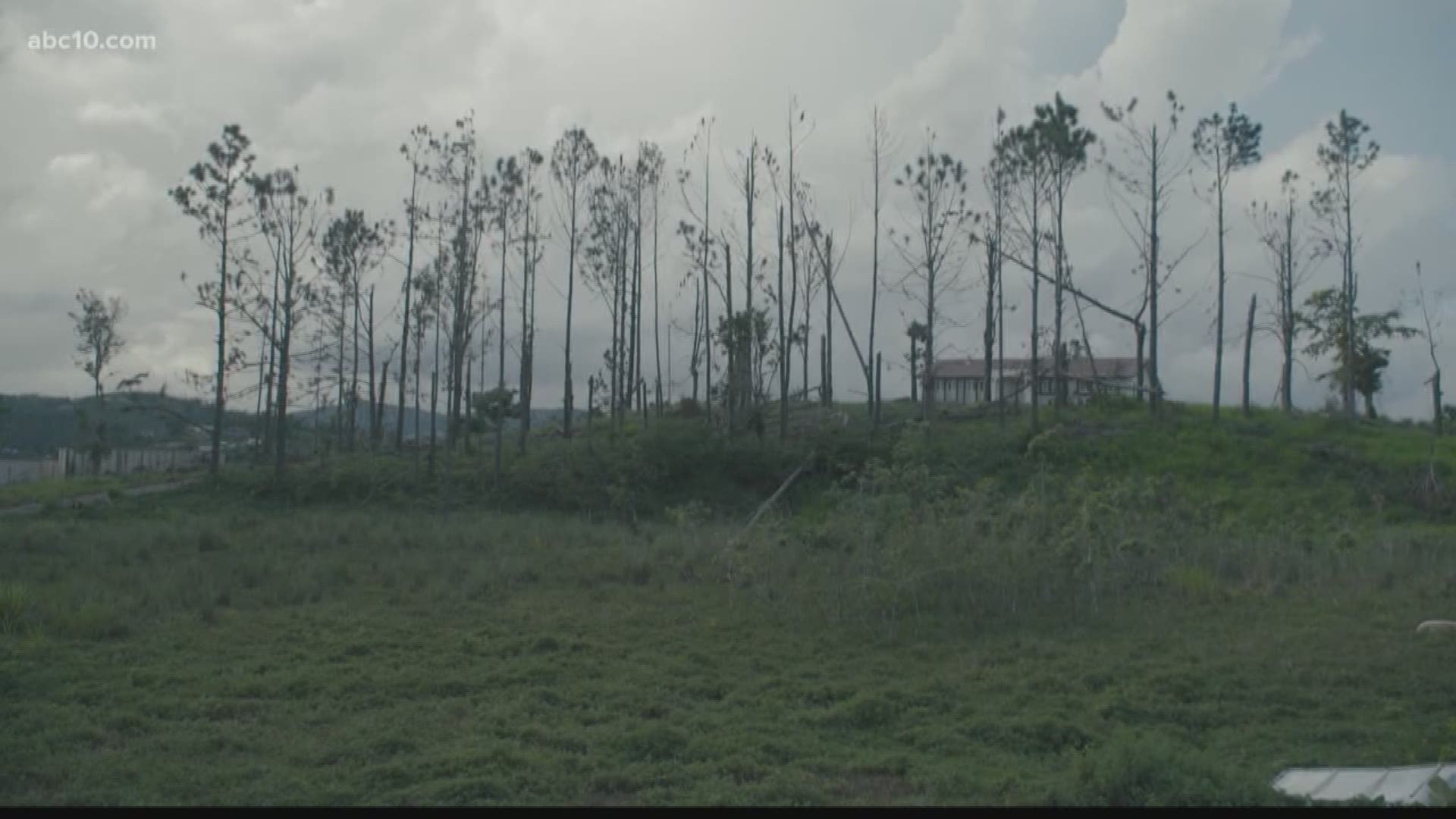"We started growing tobacco many years ago," said Samuel Morales-Cotto. "My grandmother taught me. Somebody gave me a little plant of tobacco and she recognized it and talked to me about her tradition. Then she taught me how to dry it and how to use it."
Morales-Cotto is one of many Puerto Rican farmers affected by Hurricane Maria.
We met Samuel through Tara Rodriguez-Besosa and her Guagua Solidaria, or solidarity bus. A project, funded by the Puerto Rico Resilience fund, which will take brigades of agro-ecology experts around the island to rehabilitate and jumpstart 200 hundred farms in 24 months
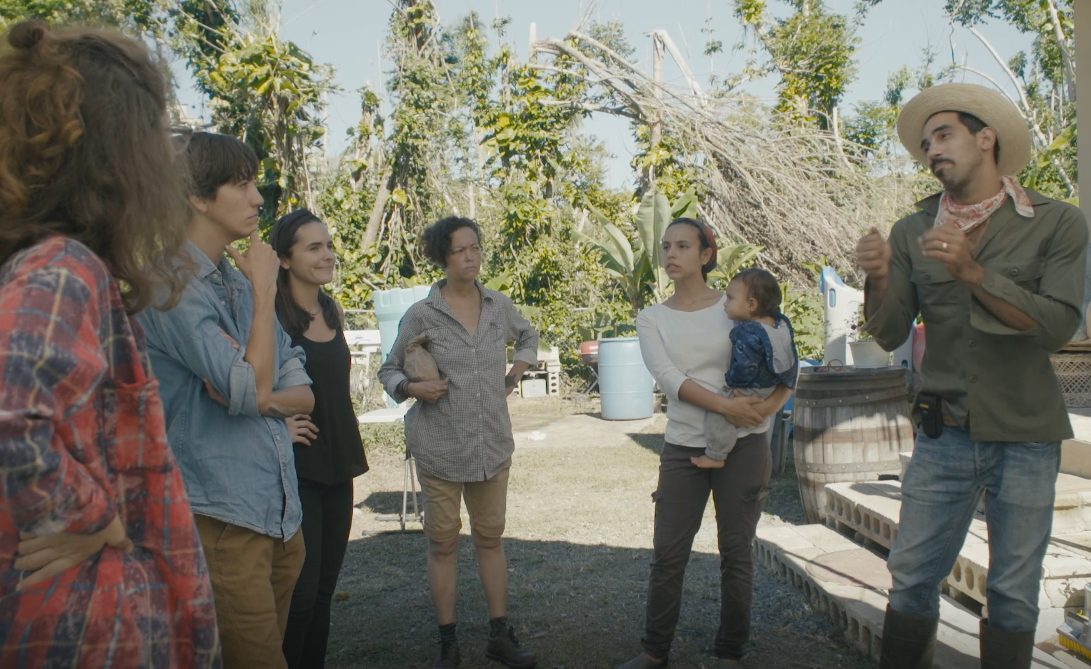
"It's the full circle," said Rodríguez-Besosa. "We give them seeds we buy whatever veggies they have. We cook the veggies we give the food to the volunteers. We're trying to like. Restart. And like any economy.”
About seven years ago Besosa created El Departamento de la Comida, a CSA project that connected farmers to consumers across the island. It was running the only fully locally sourced sustainable restaurant in Puerto Rico, but when Maria forced her to shut it down she took the kitchen and operations back on the road as part of the brigade.
"It was very apparent to me that aid was going to be slow and canned."
While Tara popped up the community kitchen, volunteers worked hard on the farm rehab.
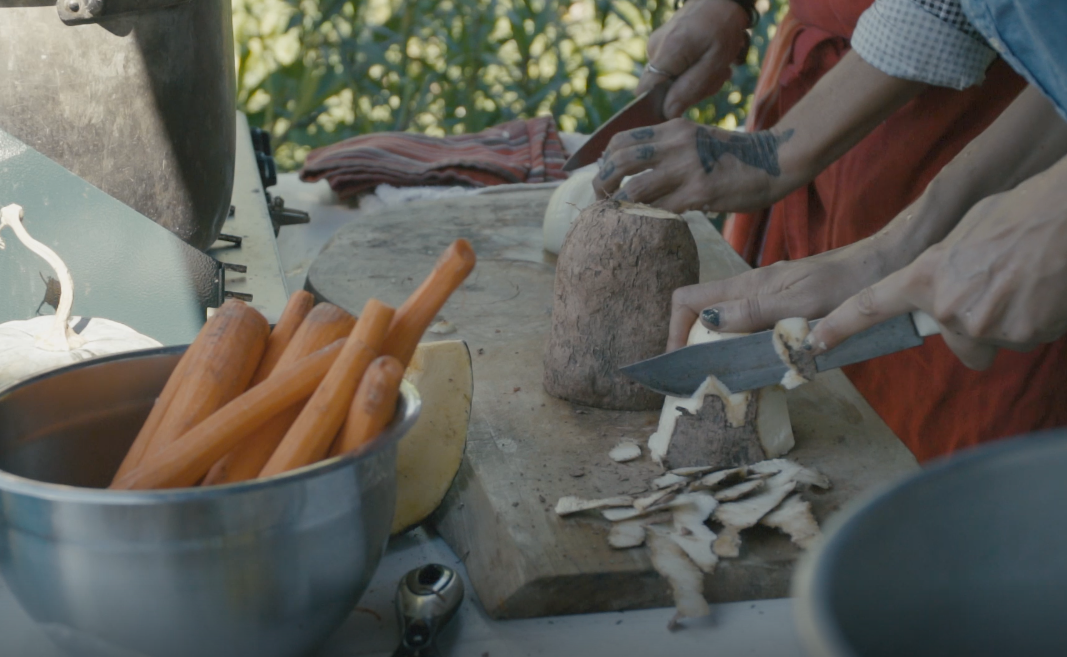
Canned, crappy food is not a hurricane-related problem. It's a large part the Puerto Rican diet consists of. Puerto Rico‘s agro-economy has been long lost. Before Maria, Puerto Rico imported 85 percent of the food it consumed. After María, Rodriguez-Besosa said it's likely 98 percent.
During the first half of the 20th century, Puerto Rico’s farmlands and agricultural workforce were exploited for the production of sugar -- controlled by American companies.
Starting in the late 1940’s under “Operation Bootstrap” the U.S. incentivized American companies to launch operations in the island -- creating an industrial economy and leaving the agro-economy behind.
That transformation from agricultural to an industrial economy meant a reduction in the jobs that were available in the island.
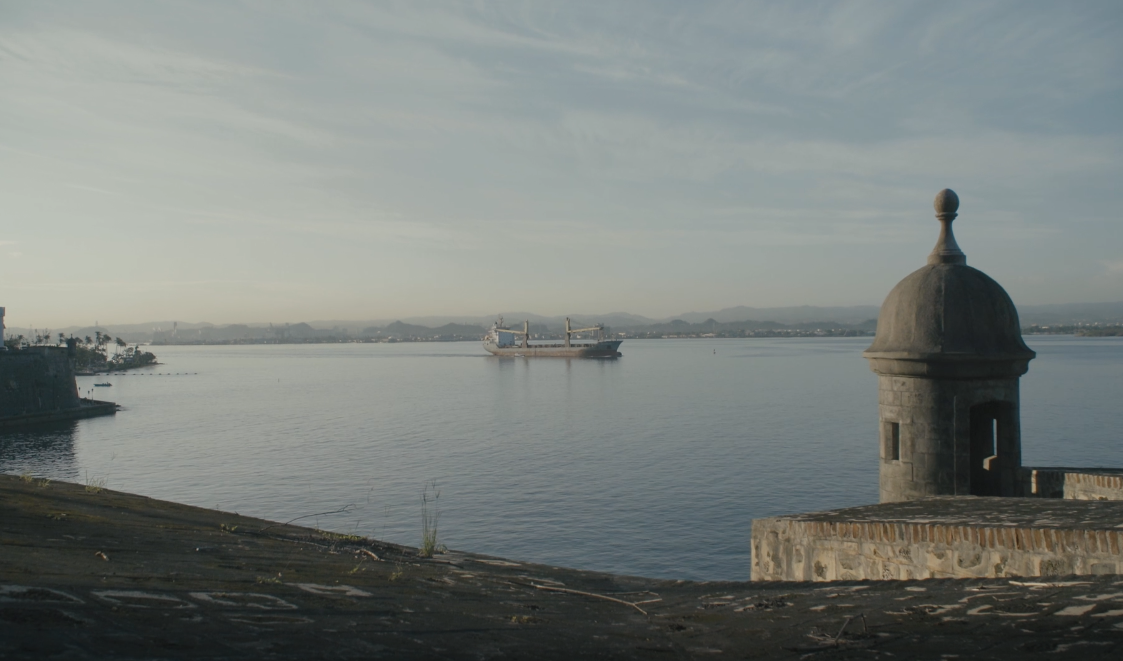
José Caraballo Pagán lives in el Caño Martin Peña, a settlement still forgotten and extremely poor in San Juan. It was founded by the families who came bfrom the countryside looking for work in San Juan. It was a jumping-off point for many in the mass migrations of Puerto Ricans to the mainland the mid-century.
"A lot of people say the history was that our people left the countryside to come here to look for work. I look at it the other way," explained Caraballo-Pagán. "The government didn't build schools in the countryside. They didn't build hospitals in the countryside so people had to leave. Maybe to find work. But I think it was also to find better health and better education for the kids."
For many farmers, the wisdom wasn’t lost, they had to trade it for opportunity elsewhere
"They were actually taken from Puerto Rico out of Puerto Rico" said Morales-Cotto. "To grow food in other countries."
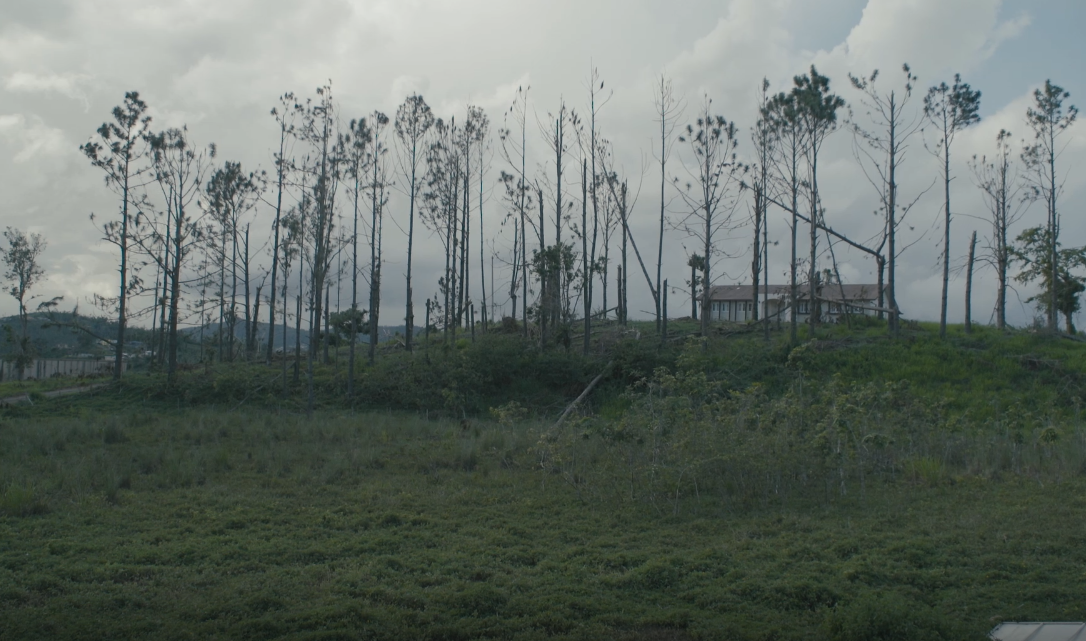
The phasing off of tax incentives, and policies like the Jones Act, which limit Puerto Rico from entering into direct commerce with countries other than the U.S., have depressed the economy and made the cost of living high for Puerto Ricans.
The solution for so many and more so after Maria is to make use of their American citizenship in the mainland.
"We are just so concerned about our family that we don't care whatever we have to do to survive," said Cotto. "Even to a place that doesn't want me. I go there. For my family, I do whatever it takes."
Puerto Ricans leave with the kind of dream that their kid is going to be Lin-Manuel Miranda or JLo, and according to Cotto the island never seizes to call them back.
Correction: An earlier version of this story stated that the Jones Act "deprives" Puerto Rico from direct commerce with other countries. A more accurate description is "limits" Puerto Rico from direct commerce with other countries.

